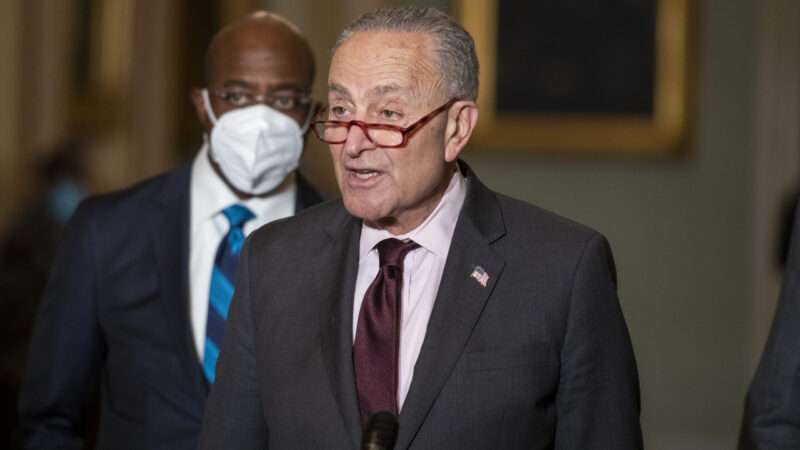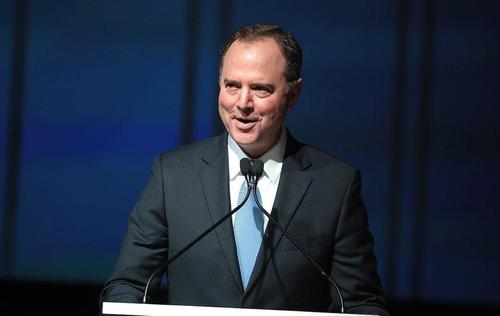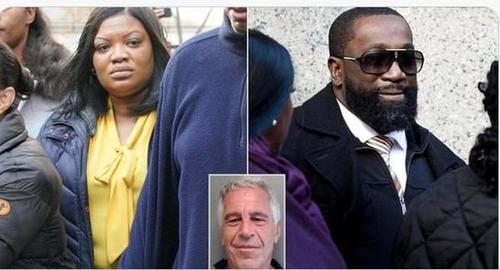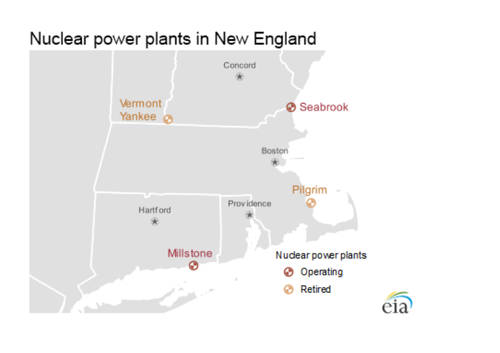President Joe Biden this week signed into law the National Defense Authorization Act (NDAA) for fiscal year 2022. Although the version of the must-pass bill originally approved by the House included legislation aimed at promoting access to banking services for state-licensed marijuana businesses, those provisions were removed during negotiations with the Senate.
This was the fifth time that the House had approved such legislation, and the latest bill, the Secure and Fair Enforcement (SAFE) Banking Act of 2021, had strong, bipartisan support in that chamber. It also was favored by at least 41 senators of both major parties. But Senate Majority Leader Chuck Schumer (D–N.Y.), a latecomer to marijuana reform who now says he wants to repeal federal prohibition, insisted that the bill be removed from the NDAA.
Stranger still, the Drug Policy Alliance (DPA), which likewise supports marijuana legalization, joined Schumer in demanding that the SAFE Banking Act be excised. “We have less than 72 hours to keep the SAFE Banking Act OUT of this omnibus bill and the only way to stop it is if advocates like you speak up right away,” Maritza Perez, the DPA’s director of national affairs, warned in a December 3 “urgent action” alert. “Don’t Let Congress Prioritize Marijuana Profits Over People,” the header said.
This puzzling turn of events illustrates a long-running debate about whether piecemeal drug policy reforms undermine efforts to achieve more fundamental and consequential changes. But it also shows how legalization is driving a wedge between erstwhile allies who agree that marijuana prohibition should end but disagree about how best to achieve that goal and what to do afterward. The clash pits House Democrats and many Democratic senators against the Senate leadership, and it brings to the fore ideological differences between progressives and libertarians who have long been united in opposing the war on drugs.
The SAFE Banking Act, which Rep. Ed Perlmutter (D–Colo.) reintroduced last March, addresses a problem that has long plagued the cannabis industry. Because marijuana remains illegal at the federal level, financial institutions are reluctant to serve businesses that manufacture or distribute it, even when those businesses are licensed and regulated by the states where they operate.
Under current federal law, even providing basic services like a checking account could expose banks to criminal charges, forfeiture, and potentially ruinous regulatory action. Their only protection lies with the enforcement discretion of federal prosecutors and regulators, whose policies and practices could change at any time. The chilling effect of that risk has left state-licensed cannabusinesses with few viable options for paying employees, covering other expenses, processing customer payments, paying taxes, or borrowing money. The result has been an excessive reliance on cash, which makes businesses more vulnerable to robbery, and various workarounds that can fail without any advance notice.
The SAFE Banking Act aims to solve this problem by protecting financial institutions that serve “cannabis-related legitimate businesses” from regulatory penalties such as loss of deposit insurance. It also prohibits regulators from instructing banks to terminate a licensed marijuana supplier’s account without a “valid reason,” which cannot be “based solely on reputation risk.” The bill says the revenue earned by state-legal marijuana businesses will no longer qualify as the proceeds of unlawful activity, meaning banks that accept such deposits are not implicated in money laundering. And it says providing loans or other financial services to state-licensed marijuana businesses cannot justify “criminal, civil, or administrative forfeiture.”
Perlmutter’s bill attracted 180 cosponsors in the House, including 26 Republicans. It passed the House in April by a vote of 321 to 101, with support from 106 Republicans. Perlmutter’s amendment adding the SAFE Banking Act to this year’s NDAA was approved by a voice vote in September. But then the SAFE Banking Act ran into a wall named Chuck Schumer. The Senate majority leader, who is working on a broader bill that would remove marijuana from the list of federally prohibited drugs, thinks his legislation should be considered first.
KTVH, the NBC station in Helena, Montana, reported that Schumer and Sen. Cory Booker (D–N.J.), who is collaborating with him on the legalization bill, “wanted to hold off on the banking provision until a broader marijuana bill can be passed.” They “said it’s important to make sure the eventual marijuana policy addresses restorative justice issues like decriminalization and expungement.”
Perlmutter was not pleased. “People are still getting killed and businesses are still getting robbed because of a lack of action from the Senate,” he said in a press release. “The SAFE Banking Act has been sitting in the Senate for three years and with every passing day their unwillingness to deal with the issue endangers and harms businesses, their employees, and communities across the country.”
Perlmutter expanded on his grievance in an interview with Marijuana Moment‘s Kyle Jaeger. “You have heard my ire and my irritation and my anger because people are getting killed; they’re getting robbed,” Perlmutter said. “It makes no sense because of the public safety aspect, the minority business aspect. Without the ability to have banking, many small businesses—veteran-owned organizations, women-owned businesses—don’t have access to capital.”
As Jaeger noted, House Rules Committee Chairman Jim McGovern (D–Mass.) slammed Schumer during a committee meeting earlier this month. “I don’t really quite know what the hell his problem is,” McGovern said. “But what he’s doing is he’s making it very difficult for a lot of small businesses…to move forward and to expand and to hire more people.”
Rep. Adam Smith (D–Wash.), who as chairman of the House Armed Services Committee played a major role in negotiating the final version of the NDAA, also objected to Schumer’s obstruction. “As a practical matter, to not have the SAFE Banking Act is incredibly dangerous,” he said. Under current law, he noted, state-licensed marijuana suppliers “basically have to run a cash business” and “can’t do the normal banking” that other businesses take for granted.
Sen. Rand Paul (R–Ky.) also criticized Senate Democrats for nixing the SAFE Banking Act. “Democrats control the House, Senate and White House and we still can’t get cannabis banking reform bills passed,” he noted on Twitter. “This should be a complete no brainer, as so many states have legalized now and we need business to operate.” Paul was one of 40 senators, including nine Republicans, who cosponsored the Senate version of the SAFE Banking Act, which Sen. Jeff Merkley (D–Ore.) introduced in March.
But as the DPA sees it, Schumer made the right call. “Big industry is trying to convince lawmakers to sneak the [SAFE Banking Act] into the must-pass National Defense Authorization Act that’s being negotiated right now,” Perez complained in her message to the organization’s supporters. “While we agree marijuana businesses, like any other businesses, need access to banking services—and in fact, the DPA-supported MORE Act would fully fix the banking issue—we cannot do so at the expense of equity and justice for Black, Latinx and Indigenous communities that have borne the brunt of prohibition. By slipping [the SAFE Banking Act] into the Defense Authorization bill ahead of moving the MORE Act, Congress is sending a clear message that the industry and huge multi-state operators take precedent before the countless people that have had their lives devastated by punitive and racially-motivated drug policies.”
The Marijuana Opportunity Reinvestment and Expungement (MORE) Act, which the House approved in a historic vote last December, was reintroduced by House Judiciary Committee Chairman Jerrold Nadler in May. It would indeed “fully fix the banking issue.” More important, the MORE Act would deschedule marijuana, resolving the untenable conflict between the Controlled Substances Act and state laws that allow medical or recreational use of cannabis, and require automatic expungement of federal marijuana convictions.
But the 90-page bill also includes some unnecessarily contentious provisions, such as an 8 percent federal excise tax on marijuana, new regulations, and new spending programs aimed at helping “socially and economically disadvantaged individuals” and “individuals adversely impacted by the War on Drugs.” The Cannabis Administration and Opportunity Act, which Schumer presented in draft form on July 14, doubles down on that approach. It is nearly twice as long as the MORE Act. It envisions heavy federal regulation of the industry, and it would impose a federal excise tax on marijuana starting at 10 percent and rising to 25 percent by the fifth year, which would be in addition to frequently hefty state and local taxes.
An alternative bill that Rep. Nancy Mace (R–S.C.) unveiled in November, the States Reform Act, takes a lighter approach, taxing marijuana at 3 percent and largely deferring to state policy choices. Geoffrey Lawrence, director of drug policy at Reason Foundation (which publishes this website), provided model language for the bill and technical feedback on Mace’s drafts. He hopes the States Reform Act will prove more broadly appealing than the MORE Act, which was backed by just a handful of Republicans in the House last year, and Schumer’s bill, which so far has not attracted any GOP support. “The States Reform Act is a relatively simple bill that gets to the heart of what most people can agree on when it comes to legalizing cannabis at the federal level,” Lawrence says.
Aside from the policy merits of these competing bills, there is the crucial question of which approach is most likely to actually achieve the goal of ending federal prohibition. So far Democrats are proceeding as if Republicans don’t matter, which does not seem like a promising strategy given the current composition of the Senate and the availability of the legislative filibuster.
The debate about the SAFE Banking Act presents a related tactical question but also a moral question. This bill, which would already be law but for Schumer’s opposition, would make a big difference for marijuana producers and distributors—including, as McGovern noted, “minority-owned businesses.” By dismissing the SAFE Banking Act as a favor to “big industry” that “prioritize[s] marijuana profits over people,” the DPA ignores the people it would help: business owners, their current and potential employees, and their customers. The organization’s anti-capitalist rhetoric is apt to alienate libertarians and conservatives who oppose prohibition but see nothing sinister in “profits” earned by supplying people with products they want.
Historically, the DPA has tried to create a big tent that welcomes people of different ideologies and political preferences as long as they agree about the need to change our drug laws. While most speakers and attendees at its conferences leaned left, there was a substantial contingent of libertarians (including me) and conservatives. The DPA honored libertarian icons such as Milton Friedman and Thomas Szasz. Its position on the SAFE Banking Act seems like a stark departure from that approach.
What about the fear that addressing the banking issue would relieve pressure for broader changes? When the House passed the SAFE Banking Act in 2019, the DPA’s response was less strident than the position it took this year. But the DPA’s Queen Adesuyi expressed concern that enacting the bill “would undermine passage of the MORE Act by taking the momentum out of marijuana reform.” She said “it is a mistake for the House to pass an incremental industry bill before passing a comprehensive bill that prioritizes equity and justice for the communities who have suffered the most under prohibition.”
The same sort of objection could be raised against any piecemeal reform, including decriminalization of low-level drug possession, legalization of medical marijuana, less draconian drug sentences, and a wide range of other harm reduction policies. These are all causes that the DPA nevertheless has supported, on the theory that we should take what we can get now and build on it later. The very concept of harm reduction, which the DPA has strongly promoted, encourages both immediately beneficial changes and, over the longer term, a fundamental reconsideration of the war on drugs, because it focuses attention on the costs of that policy.
I myself had qualms about the movement to legalize marijuana for medical use, which I worried might backfire and jeopardize the prospects of repealing prohibition altogether. But I was wrong: In practice, medical marijuana laid the ground for broader legalization, just as diehard drug warriors feared it would. And in the meantime, at least some people—state-approved patients, growers, and dispensary operators—did not have to worry about being arrested for something that never should have been a crime to begin with.
The SAFE Banking Act likewise would improve the lives of many people who currently struggle with the risks, obstacles, and uncertainties created by federal marijuana prohibition. At the same time, it would further legitimize an industry that is not going away and that Congress eventually will have to find a way to accommodate.
Ethan Nadelmann, who founded what became the DPA in 1994 and ran the organization for 23 years, addressed the tension between short-term and long-term goals in a recent interview with Reason‘s Nick Gillespie. Nadelmann argued that New York legislators who insisted on “a more socially just legalization plan” may have delayed legalization in that state but ultimately succeeded, making the final bill better than it otherwise would have been. But “Congress is a different situation,” he said, and “a strategy of holding off on doing the incremental stuff, like safe banking, until we get the broader legalization, when we know broader legalization is not gonna happen for years…may well not work on Capitol Hill.”
In his early years as an activist, Nadelmann recalled, he had conversations with libertarians who opposed the war on drugs but were not interested in the “intermediate stuff.” He said they initially did not recognize that “the nitty gritty was important,” because “policy inevitably had to evolve in an incremental way.” But many of them came around, embracing harm reduction policies that did not end prohibition but mitigated some of its worst costs. It seems like the DPA needs to relearn that lesson.
The post If Chuck Schumer Supports Marijuana Legalization, Why Did He Nix a Bill That Would Have Helped Pot Businesses Use Banks? appeared first on Reason.com.
from Latest – Reason.com https://ift.tt/3HfERLk
via IFTTT










